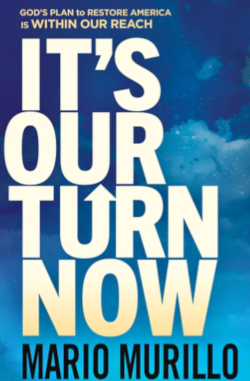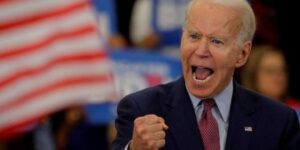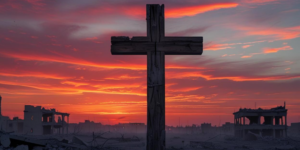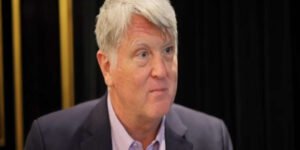Racism: Is There a Biblical Side to the Story?
The recent 6-3 Supreme Court ruling on Affirmative Action demonstrates how—whether or not racism is a real problem in America today—the debate over it is certainly hot.
One rail on the debate track embraces critical race theory; promotes Diversity, Equity and Inclusion for hiring and contracting; and wants race to be considered in college admissions. The other rail of the debate track claims that CRT, DEI and Affirmative Action are themselves promoting and perpetuating racism.
In the political sphere, Americans are often presented with one of two false dichotomies: that to oppose racism you must embrace DEI, or that if DEI is wrong, then racism itself must no longer be a problem. But there is a third rail on which the gospel runs that allows Christians to address the problem redemptively without embracing the zero-sum game that has defined the conversation.
History provides context, and so before turning to the Bible, we can turn to some observations American political scientist Samuel P Huntington made shortly after the collapse of the Soviet Union.
In explaining the importance of flags, crosses, crescents and even head coverings, he noted that cultural identity is extremely meaningful to people, and so symbols of cultural identity are imbued with that meaning.
The reason for this elevation of cultural identity, according to Huntington, is that culture is tied up with self-identity: “People define themselves in terms of ancestry, religion, language, history, values, customs, and institutions. They identify with cultural groups: tribes, ethnic groups, religious communities, nations, and at the broadest level, civilizations … We know who we are only when we know who we are not and often only when we know who we are against.”
Whether or not Huntington is correct about self-identity and cultural identity, the tribal divisions he’s describing are real. Whether they’re natural divisions or instilled by divisive machinations, the fires of the “mostly peaceful” 2020 protests underscore their reality.
If racial conflict is fire, then it must be fought with water and not more fire. One way to do that, in a diverse population, is to elevate a new identity that transcends the distinctions of the old identity. In this model, cultural and racial identities still exist. But they exist as part of the larger whole. In the Army, this overarching identity is the combat mission. In nations, it manifests as patriotism. But in the church, it stems from theology that all people of every tongue, tribe and nation are made in the image of God and will one day worship together at the throne of Jesus Christ.
In Christ, people know who they are, know who they are not and know who they are against. The apostle Peter says they are “a royal priesthood, a holy nation, God’s special possession” (1 Pet. 2:9b, NIV). Jesus says that they do not belong to the world but that he has chosen them out of the world (John 15:19). And the apostle Paul writes that their enemy is not flesh and blood but “the spiritual forces of evil in the heavenly realms” (Eph. 6:12b).
In Christianity, God is infinite, and so the likeness of God in mankind is also infinite. Compared to this infinity, other differences between people (like gender, race, status, intelligence, disability or religious affiliation) become relatively insignificant. At the same time, all people (and races) become infinitely valuable because of their participation in that infinity. Because of this, laws banning discrimination based on protected characteristics fundamentally resonate with the Christian worldview.
Regardless of one’s personal theology, and how much these laws resonate with it or not, anti-discrimination laws are not rooted in CRT or DEI movements, and they’re not rooted in opposing these movements. Instead, they are rooted in human dignity. It’s the same dignity that in Christianity flows from God. And it’s a form of dignity that many workplaces—without having an ideological framework for it—struggle to recognize. As a practical result, transcendent human rights end up competing with physical characteristics, behaviors and social affiliations.
The current friction between the parties on the two different rails revolves around failing to see significance in the third rail. Unfortunately, no amount of anti-discrimination laws either for or against Affirmative Action can protect human dignity if the executors of those laws do not have a transcendent foundation for the origins of that dignity.
 This is why the Christian third rail is so important. It informs our ability to understand what anti-discrimination laws seek to preserve and why. The ability to discuss transcendent human rights without reducing them to physical or social characteristics provides a powerful tool for both the practical and legal side of confronting racial and cultural conflicts.
This is why the Christian third rail is so important. It informs our ability to understand what anti-discrimination laws seek to preserve and why. The ability to discuss transcendent human rights without reducing them to physical or social characteristics provides a powerful tool for both the practical and legal side of confronting racial and cultural conflicts.
By comparison, the two rails that are either embracing or rejecting secular CRT, DEI and Affirmative Action in training, hiring and admissions have the same problem. Their scope is too narrow. They ignore transcendental dignity. They fixate on the relevance or irrelevance of differences and on the relevance or irrelevance of the intersectional power of those differences.
For Americans to overcome both racism and their differences in the debate over it, then, just as before with leaders like Dr. Martin Luther King Jr., they need to be connected to their Judeo-Christian foundations.
God can eliminate racism and other critical issues in America, if only we let Him. Mario Murillo explains in his book, It’s Our Turn Now. {eoa}
Join Charisma Magazine Online to follow everything the Holy Spirit is doing around the world!
Bruce Sidebotham serves as a consulting expert at Telios Teaches, bringing decades of experience in cross cultural environments, both in a missionary and military context. He received a Doctor of Ministry degree from New Geneva Theological Seminary at Colorado Springs in 2004. The Rocky Mountain Presbytery of the Presbyterian Church in America ordained him as a teaching elder and evangelist in 2004.







































